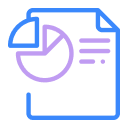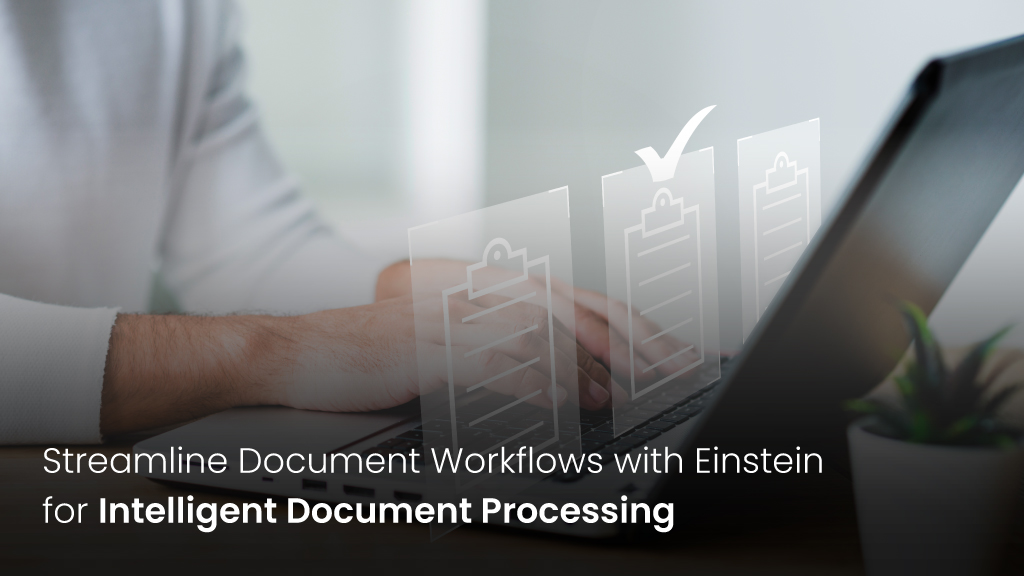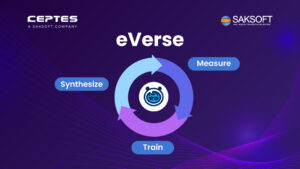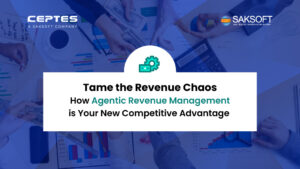What is Intelligent Document Processing?

Key Features and Benefits of Einstein for Intelligent Document Processing
1. AI-driven Data Extraction, Classification, and Summarization
With Einstein AI capabilities, IDP identifies and extracts essential data from various documents, such as contracts, IDs, and invoices. This automation reduces errors, enhances accuracy, and minimizes manual labor—allowing teams to focus on strategic tasks rather than repetitive data entry.
2. Intuitive Natural Language Prompts
Natural language prompts make Intelligent Document Processing with Einstein highly user-friendly. Users can issue commands like “Extract the total amount from these invoices” or “Retrieve due dates,” turning complex document processing tasks into quick, automated actions. This intuitive approach accelerates workflows and saves valuable time for employees.
3. Seamless MuleSoft Integration Across Systems
Thanks to MuleSoft integration, Einstein for IDP seamlessly connects with business systems like Salesforce, ERP, and other core applications. IDP can be accessed as an API within MuleSoft’s Anypoint platform, eliminating data silos and allowing departments to access real-time information effortlessly.
4. Advanced Security and Compliance
With Einstein AI, security is a built-in priority. The document automation process involves converting documents to text using OCR (Optical Character Recognition), followed by a controlled workflow that passes data through MuleSoft’s Trust Layer and Einstein LLM Gateway, ensuring regulatory compliance and data integrity. This makes Einstein for IDP ideal for industries with stringent data protection requirements.
5. Human Oversight for Enhanced Accuracy
In situations where high precision is necessary, Einstein for Intelligent Document Processing offers human-in-the-loop capabilities. Users can review or approve data before it’s finalized, enabling a perfect balance between automation and control.
Configuring and Using Einstein for Intelligent Document Processing
Configuring Einstein for IDP is designed to be as straightforward as possible. Users can quickly set up document actions using pre-built templates, such as for invoices or contracts, or create custom configurations as needed. Here’s how easy it is to get started:
1. Create a Document Action: Select a template or create a new action and specify the data fields to extract.
2. Define Fields and Add Prompts: Use natural language prompts to instruct the AI-powered data extraction on specific data points.
3. Publish and Integrate: Publish the document action and make it accessible within the organization through MuleSoft integration.
After configuration, users upload documents to the IDP API, where the AI processes the data, assigns confidence scores, and makes it available for retrieval in JSON format. For complex documents or low-confidence extractions, human review can be initiated, providing flexibility for high-stakes use cases.
Use Cases of Intelligent Document Processing (IDP)
Beyond the core functionalities, Einstein for IDP is a versatile tool that offers substantial improvements across various sectors. Here are some expanded use cases where IDP can create transformative value:
1. Insurance Claim Processing
Accelerated Claims Processing: Automating the extraction of key information from claims forms, such as accident details, medical reports, and vehicle damage assessments.
Improved Accuracy: Reducing manual data entry errors and ensuring consistent data quality.
Enhanced Fraud Detection: Identifying potential fraudulent claims by analyzing patterns and anomalies in the extracted data.
2. Supply Chain Management
Streamlined Procurement: Automating the processing of purchase orders, invoices, and shipping documents to expedite payment cycles and reduce errors.
Inventory Management: Extracting data from shipping documents to accurately track inventory levels and optimize stock management.
Logistics Optimization: Analyzing shipping documents to identify potential delays, optimize routes, and reduce shipping costs.
3. Talent Acquisition
Efficient Candidate Screening: Automating the extraction of key information from resumes and cover letters, such as experience, skills, and education.
Improved Candidate Matching: Identifying candidates who meet specific job requirements by analyzing their skills and experience.
Faster Time-to-Hire: Accelerating the hiring process by automating the initial screening and shortlisting stages.
4. Financial Services
Automated Loan Processing: Extracting information from loan applications, credit reports, and financial statements to streamline the approval process.
Enhanced Fraud Detection: Identifying fraudulent activities by analyzing patterns and anomalies in financial documents.
Regulatory Compliance: Ensuring compliance with regulatory requirements by automatically extracting relevant information from financial documents.
5. Healthcare
Efficient Medical Record Processing: Automating the extraction of patient information, diagnosis codes, and treatment details from medical records.
Improved Clinical Decision Making: Providing insights from medical records to support clinical decision-making.
Accelerated Claims Reimbursement: Streamlining the claims reimbursement process by automating the extraction of information from medical claims.
6. Legal Services
Contract Review and Analysis: Extracting key clauses, terms, and conditions from legal contracts to facilitate due diligence and risk assessment.
Case Management: Automating the extraction of information from legal documents, such as case briefs, pleadings, and discovery documents.
Regulatory Compliance: Ensuring compliance with legal and regulatory requirements by analyzing legal documents.
By automating these tasks, IDP can significantly improve efficiency, accuracy, and decision-making in various industries.
How Einstein for IDP Empowers Various Teams
Across multiple sectors, Einstein for Intelligent Document Processing enables faster, more efficient workflows by reducing manual data entry and improving data accuracy. Here are just a few of the ways that different teams can benefit:
- Finance: Automate invoice processing, reduce errors, and improve reporting accuracy.
- Customer Service: Streamline case management by extracting key details from customer documents like IDs and orders.
- Operations: Enhance supply chain efficiency by processing critical documents, such as bills of lading, with ease.
- Healthcare: Quickly access and process patient records and claims, ensuring timely, efficient patient care.
- Legal: Expedite contract analysis by extracting and summarizing key terms and compliance clauses.
Unlock More Document Types with Einstein IDP
Future Potential of Einstein for Intelligent Document Processing
Wrapping Up:
Einstein for Intelligent Document Processing is transforming document automation by combining MuleSoft’s powerful integration capabilities with the advanced AI of Einstein AI. By simplifying data extraction, enhancing accuracy, and enabling seamless workflow integration, Einstein for IDP allows teams to achieve unprecedented efficiency across departments. Ready to explore the benefits of Intelligent Document Processing for your business?
Contact CEPTES today to discover how Einstein for IDP can optimize your document workflows and drive greater productivity across your organization.
FAQs
1. What types of documents can Einstein for IDP process?
2. How secure is Einstein for IDP for sensitive data?
3. Does Einstein for IDP integrate with other systems?
4. How accurate is the data extracted by Einstein for IDP?
5. How quickly can Einstein for IDP be deployed in a business environment?

Nilamani Das
Nilamani is a thought leader who champions the integration of AI, Data, CRM and Trust to craft impactful marketing strategies. He carries 25+ years of expertise in the technology industry with expertise in Go-to-Market Strategy, Marketing, Digital Transformation, Vision Development and Business Innovation.


















